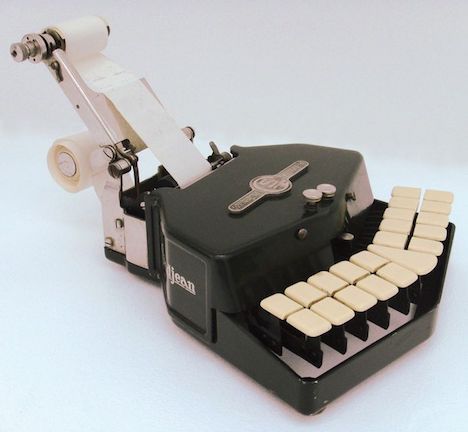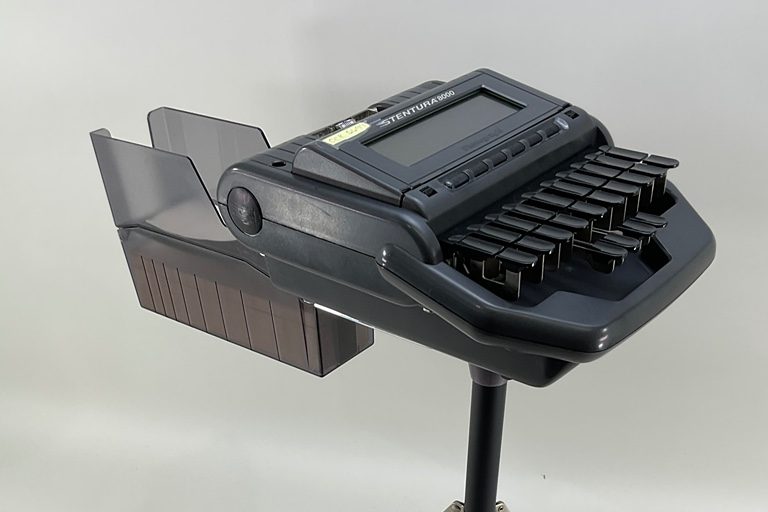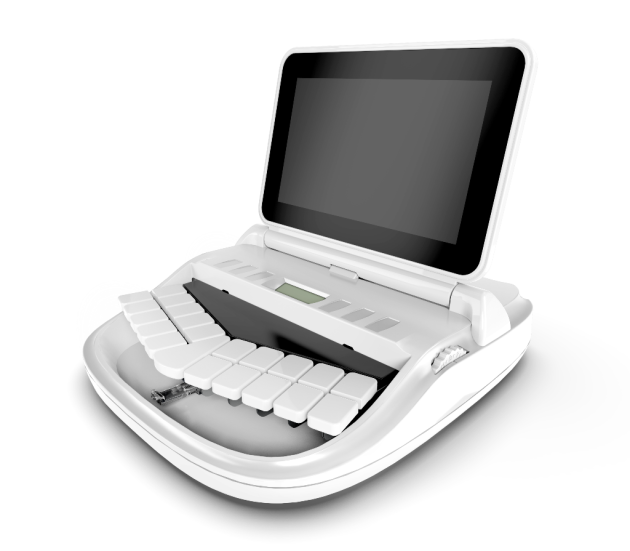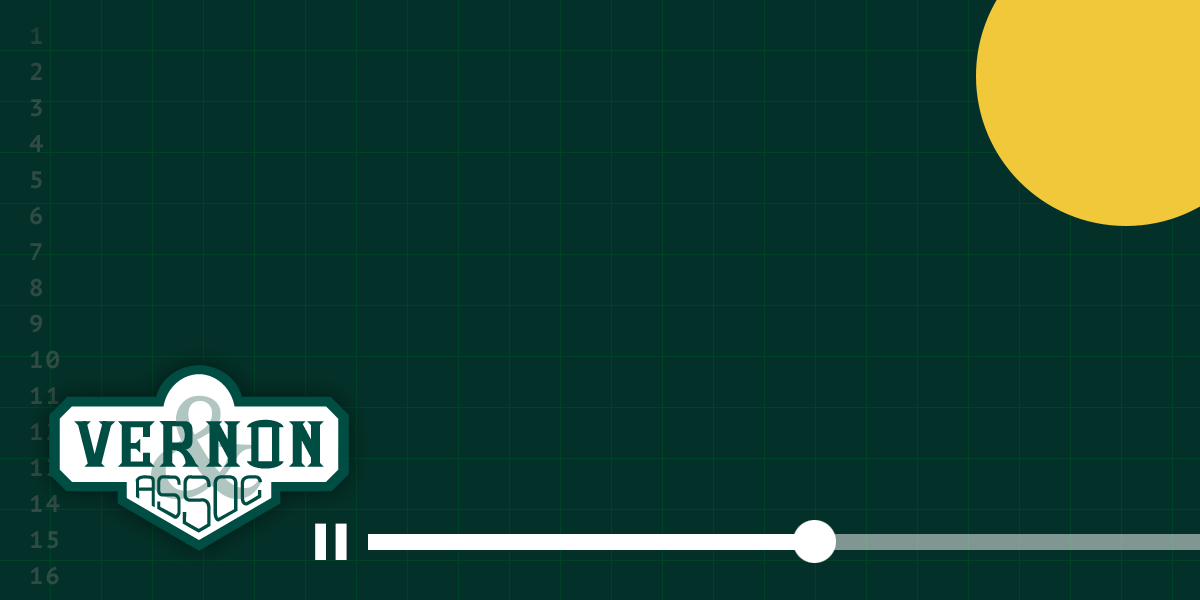What does Stenography mean?
Stenography, derived from the Greek words “steno” meaning narrow and “graphy” meaning writing, refers to the process of writing in shorthand. Shorthand is a system of writing that allows for rapid transcription of spoken language into a written format.
In the context of a professional setting, stenographers use a special machine called a stenotype to record spoken language in real time. The stenotype machine has fewer keys than a traditional keyboard, and stenographers press combinations of keys simultaneously to write in shorthand symbols that represent sounds, words, or phrases. This system allows stenographers to keep pace with the rapid speed of spoken language, capturing an accurate record of conversations, speeches, or legal proceedings.
What is a Stenographer?
A stenographer is a skilled professional trained in the art of stenography, a unique system of writing known as shorthand. They specialize in capturing spoken language and transcribing it into written form, often in real time. They utilize a special device known as a stenotype machine, which allows them to press multiple keys at once, creating symbols that represent sounds, words, or phrases.
For instance, in stenography, the phrase “Ladies and gentlemen” might be written as “HRAPBDZ”, where each symbol corresponds to a specific sound or part of a word. This allows stenographers to write much faster than they could with traditional typing, enabling them to keep up with live speech.
Remember, stenographers are not just transcriptionists; they are a vital part of the communication process in many sectors, including the legal system, business settings, and even broadcast media. If you’re considering a career in this field, you are stepping towards a dynamic and rewarding profession that combines the art of language with the precision of technology.
How does Stenography work?
Stenography works by using a system of shorthand, which allows for the rapid transcription of spoken language into written format. Unlike traditional typing, where each letter is pressed individually, stenography involves pressing multiple keys at once to create phonetic symbols. These symbols can represent sounds, words, or even phrases, enabling a stenographer to keep pace with live speech.
A stenographer uses a specialized device known as a stenotype machine, which has fewer keys than a conventional keyboard. Each key on the stenotype corresponds to a particular phonetic sound, and by pressing a specific combination of keys simultaneously, the stenographer can record entire syllables, words, or phrases in a fraction of a second.
For instance, if someone were to say “It is a good day,” a stenographer might press the keys for “It”, “is”, “a”, “gud”, and “dae” in quick succession. These shorthand symbols are then transcribed into standard English either by the stenographer after the event or by computer-aided transcription software in real time.
It’s important to note that stenography requires a high degree of skill and training. Stenographers need to have an excellent command of the language they are transcribing, be able to understand a wide range of accents and speaking speeds, and have the ability to concentrate for extended periods. However, with practice and dedication, stenography can be an incredibly efficient tool for transcription.
What are some different stenotype machines?
Stenotype machines come in various types, each with its unique features tailored to the specific needs of the stenographer. Here are some examples:
Traditional Stenotype Machines
These are non-electronic, mechanical devices that use paper tapes to record the shorthand symbols as the stenographer types. They were widely used before the advent of digital technology but are now mostly obsolete.

Digital Stenotype Machines
These machines are a modern upgrade of traditional stenotypes. They have digital displays and use electronic means to record the shorthand symbols typed by the stenographer. Digital stenotype machines often come with additional features like adjustable keyboards, lightweight designs, and even the ability to connect to computers or other digital devices.
An example of this would be the Stenograph® Stentura which has a digital screen, but still relies on paper as the medium to store the shorthand notes.

Real-time Stenotype Machines
These are the most advanced type of stenotype machines and are commonly used in today’s court reporting and captioning industries. They can be connected to computers running real-time transcription software, which translates the stenographic shorthand into readable English instantly. This real-time translation capability allows for immediate review and editing of transcriptions and enables services like live closed captioning and Communication Access Realtime Translation (CART).
An example of a real-time stenotype machine is the Stenograph® Luminex. Known for its sleek design and lightweight build, the Diamante offers user-friendly features like an adjustable color screen, a flat keyboard for comfortable typing, and advanced real-time capabilities.

Each type of stenotype machine serves a particular purpose and is suited to different professional environments. As a stenographer, it’s crucial for you to choose the right stenotype machine that meets your specific needs and preferences.
What are the differences between Stenographers and Court Reporters?
While the terms “stenographer” and “court reporter” are often used interchangeably, they do have slightly different meanings based on their roles and responsibilities.
A stenographer is a trained professional who uses a stenotype machine to transcribe spoken words into a shorthand format. Stenographers work in various settings, such as business meetings, live broadcasts, and public events, wherever there is a need for a written record of spoken language.
On the other hand, a court reporter is a type of stenographer who specializes in legal proceedings. They are an integral part of the judicial process, providing verbatim transcriptions of court proceedings such as trials, depositions, and hearings. Court reporters might also provide services like real-time transcription and closed captioning.
In essence, all court reporters are stenographers, but not all stenographers are court reporters. A stenographer working in a courtroom is a court reporter, but a stenographer capturing a business meeting or a live broadcast isn’t. Regardless of the setting, both stenographers and court reporters share the critical task of ensuring accurate, complete, and secure records of spoken language.
What types of careers are available to Court Reporters?
Court reporting is a multifaceted profession with several specializations, each playing a crucial role in preserving accurate records of spoken language. From Freelance and Official Court Reporters to Communication Access Real-Time Translation (CART). Regardless of the specialization, all court reporters are integral to upholding communication access and information accuracy.
Here are several types of court reporters, each specializing in different aspects of the profession.
- Official Court Reporters: These reporters work directly for the court system in trials, hearings, and other official legal proceedings. They are typically employed by a local, state, or federal court, and their primary responsibility is to provide an accurate, word-for-word transcript of proceedings. They may also be tasked with marking exhibits or assisting judges and attorneys.
- Freelance Court Reporters: Freelance court reporters work independently or through a reporting agency. They typically cover depositions, arbitrations, or any legal proceedings outside of the courtroom. They might also provide transcription services for meetings, speeches, or other events.
- Scopists: A scopist is a professional who works closely with court reporters to edit and proofread transcriptions. They play a crucial role in ensuring the accuracy of the final transcript. The court reporter provides the initial transcript, and the scopist reviews it, correcting errors, filling in missing information, and formatting it according to specific guidelines.
- Broadcast Captioners: Also known as closed captioners, these professionals provide captions for television programs, news broadcasts, and live events. They transcribe dialogue and sound cues in real-time so that viewers who are deaf or hard of hearing can follow along. Some broadcast captioners work from the broadcast location, while others may work remotely.
- Communication Access Real-Time Translation (CART) Providers: CART providers work with individuals who are deaf or hard of hearing to provide real-time captioning services. They often work in classrooms, business meetings, conferences, or other public events. They may provide their services on-site or remotely, with the captions displayed on a computer, a projection screen, or even a personal device.
- Legislative Reporters: These court reporters specialize in transcribing legislative proceedings such as those in state legislatures or Congress. They ensure there is a complete and accurate record of these important discussions and decisions.
Each type of court reporting requires a unique set of skills and expertise, but all share the common goal of providing accurate and complete transcriptions of spoken language. Whether you’re working in a courtroom, a television studio, or a classroom, you are playing a crucial role in ensuring communication access and preserving the record.
How much do Court Reporters earn? What does the typical work and life balance look like?
The length of time you’ll spend in school to become a court reporter varies depending on the program, but it typically takes between two to four years. You’ll be learning shorthand, legal terminology, courtroom procedures, and other essential skills.
The salary for a freelance court reporter can vary widely depending on factors such as the region in which you work, your level of experience, and the complexity of the assignments you take on. According to the U.S. Bureau of Labor Statistics, as of May 2022, the mean annual wage for court reporters was $63,560, with the top 90th percentile earning over $116,380. Freelance court reporters may earn more or less than this figure based on the variables mentioned.
As for work hours, freelance court reporters have the advantage of more flexibility compared to their counterparts (official court reporters) employed by a court. The number of hours you work each week will depend on the number of assignments you take on. However, keep in mind that court reporting can be an intense job that requires a high level of concentration. Jobs can be full-day assignments, and beyond the actual reporting time, you also need to account for the time spent transcribing and proofreading your work. So while you have some control over your schedule as a freelancer, the job can still be demanding.
Court reporting is a unique profession that combines skill, precision, and a crucial role within the legal system. For many, like Cynthia Rodriguez, a court reporter based in Bakersfield, California, the measure of success isn’t found in traditional markers like promotions or high salaries but in proficiency and speed—specifically, the ability to type 250 words per minute. This exceptional level of performance is indicative of a deep commitment to the role of safeguarding the legal process by capturing every word spoken during legal proceedings.
Despite the absence of conventional academic requirements, such as a bachelor’s degree, court reporting offers substantial financial benefits that can rival and even surpass those of many degree-requiring careers. According to Irene Nakamura, a seasoned court reporter and mentor to Rodriguez, the profession offers impressive earning potential. Entry-level court reporters can expect earnings starting from $200 for a half-day’s work, with the potential to earn well over $100,000 annually as they gain experience and speed.
The field of court reporting can be competitive, so dedication, accuracy, and professionalism are key to standing out and succeeding.
How can I get Started with my career in Court Reporting?
Starting a career in court reporting involves a structured path of education, skill development, certification, licensing, gaining experience, and continuing education. Initially, you’ll need to complete a court reporting program, focusing on building essential skills like listening, speedy typing, and language mastery. Obtaining certification, such as the Registered Professional Reporter (RPR) from the National Court Reporters Association, can enhance your professional standing. Depending on your state, a license may be necessary. Once qualified, seek entry-level positions to gain experience and consider specializing in areas such as real-time reporting. To stay abreast of the evolving industry, engage in continuous learning opportunities.
This journey requires dedication and commitment, but the reward is a fulfilling career in a vital sector of the legal system.
Education and Training
Begin by enrolling in a court reporting program accredited by the National Court Reporters Association (NCRA). These programs typically offer courses in shorthand theory, transcription, legal terminology, and courtroom procedures. Depending on the program, it can take anywhere from two to four years to complete.
Skill Development
Court reporting requires exceptional listening skills, fast and accurate typing speed, and a strong command of the English language. Regular practice will be key to developing and honing these skills.
Certification
After completing your education, consider obtaining certification. The NCRA offers the Registered Professional Reporter (RPR) certification, which requires passing a skills exam and a written exam. Certification not only validates your skills but can also give you an edge in the job market.
State Licensing
Depending on your state, you may need to obtain a license to work as a court reporter. Requirements vary by state, so be sure to research the specific guidelines in your area.
Gain Experience
Start by looking for entry-level positions in your local court system, law firms, or court reporting agencies. Over time, you can work your way up to more advanced roles or consider specializing in areas like real-time reporting or broadcast captioning.
Continuing Education
Like many professions, court reporting is continually evolving, especially with advancements in technology. Stay current with trends and updates in the field by pursuing continuing education opportunities.
A successful career in court reporting requires dedication, patience, and a commitment to precision. It’s a challenging profession, but it can also be rewarding, providing a front-row seat to fascinating legal proceedings and a chance to provide an essential service in the justice system.
What is does the future of Court Reporting hold?
The court reporting profession stands at a pivotal juncture, facing a transformative shift that underscores both challenge and opportunity. The comprehensive Court Reporting Industry Outlook Report by Ducker Worldwide, sponsored by the National Court Reporters Association (NCRA), paints a revealing picture of the landscape for court reporters and captioners across the United States. With a balanced supply and demand currently characterizing the field, the profession is nevertheless on the cusp of significant change, prompted by an aging workforce poised for retirement and a dwindling number of new entrants to fill the looming void.
The Ducker report highlights a crucial insight: the supply of court reporters is not only declining but is set to fall short of the burgeoning demand within the next five years. This gap is anticipated to represent nearly 5,500 positions by 2018, a shortfall driven by decreased enrollment and graduation rates from court reporting programs and accentuated by a notable retirement wave. Such a scenario presents a unique and substantial opportunity for those considering a career in court reporting, offering a path to a lucrative and secure future within a profession that has long been the backbone of legal proceedings.
Court reporting is more than a job; it’s a critical service that upholds the integrity of the judicial process, ensuring that every word spoken in legal settings is accurately captured and preserved. As the current generation of court reporters nears retirement, the demand for skilled professionals to take their place is growing ever more urgent. The profession needs a new wave of dedicated individuals, equipped with the skills and passion to maintain the high standards of accuracy and reliability that are fundamental to the justice system.
This looming shortage also serves as a call to action for the industry and educational institutions alike, highlighting the need for increased awareness and targeted initiatives to attract and train the next generation of court reporters. With strong demand forecasted and the promise of job security, the court reporting profession offers a compelling career path for those ready to step into the roles soon to be vacated by retiring professionals.
Wrapping up and final thoughts
In wrapping up, the fields of stenography and court reporting hold significant roles within various sectors of our society, particularly in the legal landscape. The function of a stenographer and the intricacies of stenography, coupled with the efficiency of the stenotype machine, showcase the blend of technology and skill required in this profession.
The diversity within the profession is evident, with specializations including official and freelance court reporters, scopists, broadcast captioners, CART providers, and legislative reporters. Each role, though different, fulfills the critical need for accurate and immediate transcriptions of spoken language.
The process to becoming a court reporter or stenographer involves a few years of specialized training and potential certification and licensing, based on jurisdiction. Though it can be a demanding profession, the flexibility, particularly for freelancers, and the competitive compensation make it an attractive field.
Ultimately, whether you’re an official court reporter creating an accurate record of a trial, a broadcast captioner providing real-time captions for live events, or a scopist ensuring the accuracy of transcriptions, you are contributing significantly to maintaining the integrity of information and facilitating communication access.
Looking to work as a freelance court reporter?
Vernon Court Reporters, is actively hiring certified Washington Court Reporters to join our distinguished team. With a longstanding history of excellence in the legal transcription industry, we are expanding our services across Washington state to meet the growing demand for skilled court reporting professionals. As a certified court reporter with us, you’ll have the opportunity to work on a diverse range of assignments, contributing to the integrity of the legal process while benefiting from competitive compensation, flexible scheduling, and the support of a well-established, family-owned firm. Whether you’re looking to take on new challenges or expand your professional horizons, we invite you to bring your expertise to our team and help us continue to set the gold standard in court reporting services. Join us in our commitment to delivering outstanding quality and reliability in the legal community.
Sources
- U.S. Bureau of Labor Statistics. (n.d.). Occupational Employment and Wages, May 2022: 27-3092 Court Reporters and Simultaneous Captioners.
- National Court Reporters Association (NCRA) & Ducker Worldwide. (2013-2014). Court Reporting Industry Outlook Report.


